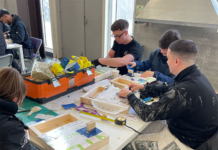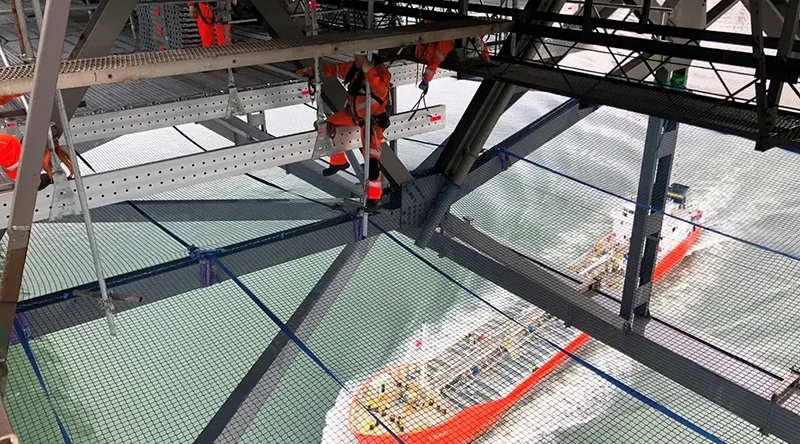
EMBRACING the more tricky and technical jobs has been one of the keys to I-Scaff Access Solutions’ success, the Glenrothes-based firm’s MD has told Project Scotland.
Speaking from the company’s busy stand at the recent ScotPlant construction equipment exhibition in Ingliston, which it shared with Industrial Group partners Johnston Rigging (Fife) and J Todd Plant Services, Ross Brown explained that I-Scaff is gaining a reputation for taking on challenging projects that some other business won’t touch.
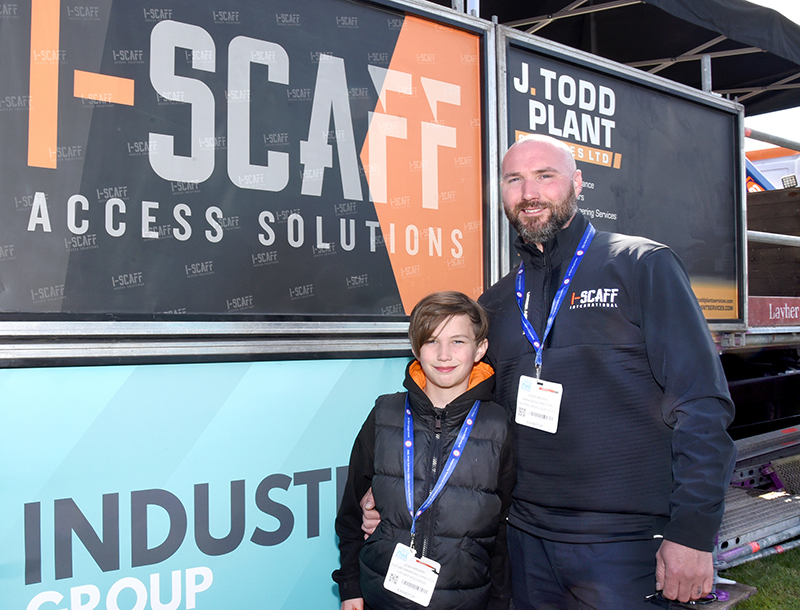
“We do loads of bespoke jobs,” he explained, adding that the ‘I’ in ‘I-Scaff’ stands for innovation. “We’re kind of the go-to company for things that nobody else will touch; it means that they’re not all big and glamorous, but I think through the technical jobs, we’ve retained a good staff retention rate.
“A lot of guys have been with us for five+ years now – interesting jobs keep everyone hungry and enjoying their work.”
Predominantly operating on projects within the whisky, water, and energy industries, Ross revealed that the company put in excess of 3,500 scaffolds up last year – with many also being major works.
One project made history, with I-Scaff being the first firm to utilise Layher’s award-winning TwixBeam solution, which was implemented on a pipe bridge refurbishment at a whisky distillery and allowed for operations at the facility to continue throughout the works.
The system was later used on a project to install a full cantilever drop scaffold on the Livingston M8 slip road to allow for concrete repairs.
“Layher is always innovating, and we work with the design team on creating new parts and ways of doing things,” Ross added. “Giving our client value for money by doing things a wee bit outside of the box is what we’ve built our reputation on.”
I-Scaff also carried out work on the Forth Road Bridge in a project that racked up thousands of views on YouTube, after the company documented its planning, design, and delivery of an extensive work area underneath the road deck of the bridge for a maintenance project.
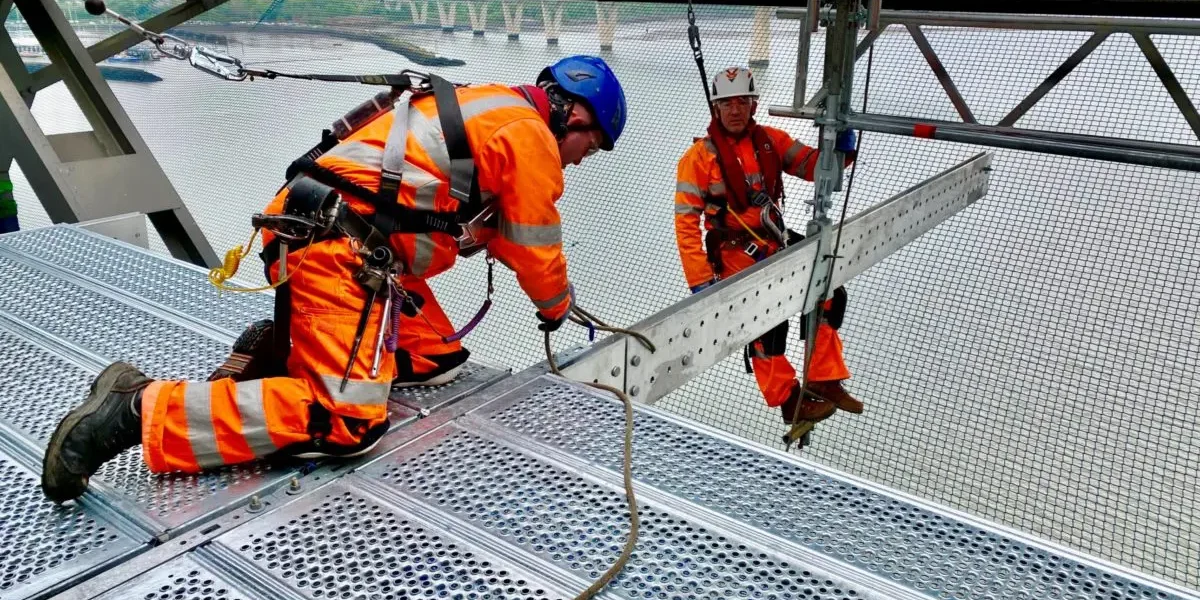
Using Layher’s FlexBeam system on the project, the contractors were able to work from a scaffold suspended from the bridge’s own steel. The scaffolding was first presented to clients in virtual reality, allowing for a clear visual demonstration of the system prior to it being constructed.
“We’ve got our own CAD technicians and they do it on a VR cloud software,” Ross explained. “So, when we design the scaffold, we send out a link and you can go onto our cloud and walk through the scaffolding on a computer before it’s even built. You can also add notes that are sent to our design engineers who can then modify the design live.”
Much of I-Scaff’s way of working is influenced from Ross and business partner, David Campbell’s, time in the oil and gas sector.
A big believer in trusting what you know, he has taken principles from the ‘high-quality and health-and safety-driven’ industry, which has proved appealing to those undertaking commercial businesses. The company’s biggest client is a major whisky brand.
“All of our business is repeat,” Ross continued. “We do get new clients, but we’re now having to pick and choose – we’re very fortunate we can do that, and it’s not in a snobby way; it’s more ensuring we don’t overstretch ourselves.
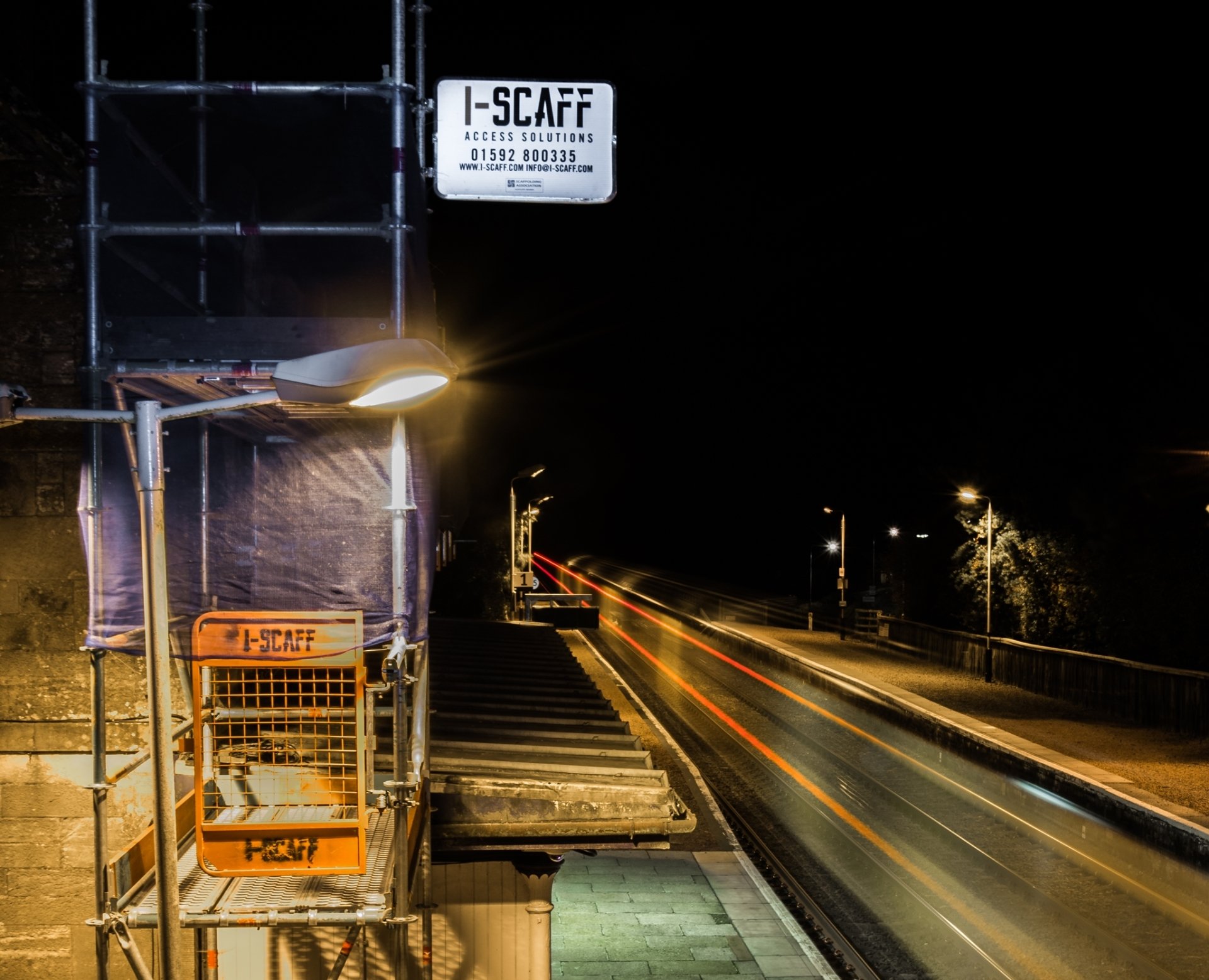
“It’s easy to say yes to everything, but we have to be careful because we don’t want the quality to suffer and if you start to force jobs through the books and jam pack the calendar, something has to slip – either price, quality, or health and safety, and we’re not willing to sacrifice any of that.”
With the firm having doubled its turnover each year for almost a decade now, 2024 is shaping up to be another successful year.
Recent investment has led the company to carry trucks with larger HIABS and the Industrial Group partnership means it has crane capabilities – allowing the group to take on whole projects.
Furthermore, work is underway on I-Scaff’s new bespoke 1.5-acre headquarters in Fife, which will feature office and training spaces, a HGV service bay, and a 5,000 square foot concrete yard – a significant investment that Ross said was only possible through the consistent delivery of high-quality projects by the team.





